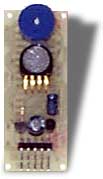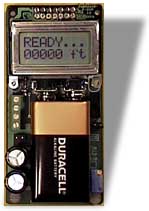Altimeters
| ELECTRONICS |
|
Altimeters
Accelerometers Timers Cameras Data Acquisition RF Interference Internal Wiring Dolphin Camera
ELSEWHERE |
 |
Electronic devices to measure altitude based on barometric pressure are called altimeters. These units read the feet above sea level by comparing the relative pressure of the air at a given level. Rocketry devices incorporating altimeters are used mainly for deployment of recovery devices. There are numerous units on the market, the ones listed below are a sampling of what is available.
Adept ALTS2 & ALTS2-50K Altimeters
 |
The ALTS2 and its derivative ALTS2-50K are devices which measure and report the highest altitude achieved during flight and can also deploy recovery devices via the two deployment switches built in.
 |
- the ALTS2 is designed for flight altitudes up to 15,000 feet above sea level and deploys its main chute at 250 feet above ground level.
- the ALTS2-50K is designed for flight altitudes up to 50,000 feet above sea level and deploys its main chute at 750 feet above ground level.
A piezo beeper reports altitude and operating status including the continuity of both deployment charges. Power is provided by an integral 12 volt N-sized lighter battery.
Dimensions are 1.0" wide by .75" thick by 4.45" long. Fits inside a 1.01" ID tube and weighs 1.0 ounce with battery.
Adept APD1 Altimeter
 |
Much smaller than the ALTS2, the APD1 could be a very useful device for recovery of a booster in a multi-stage rocket, where altitude recording and reporting isn't as important as safe recovery of the rocket.
A piezo beeper reports operating status including the continuity of the deployment charge. Power is provided by an external source between 6 and 18 volts. The battery should be capable of firing the flashbulb or electric match that will be used for deployment.
Dimensions are 1.0" wide by .6" thick by 2.5" long. Fits inside a 1.01" ID tube and weighs .4 onces without battery.
Olsen FCP-M1 Altimeter
 |
The maximum altitude is displayed following flight on an 8 x 2 character, alpha-numeric LCD screen built right into the unit. It is mach flight capable and features three user defined time-out delays. Functions include continuity, launch detect, apogee and low altitude. The range if from 0 to 15,000 ft +/- 5% above ground level with a maximum functional altitude of 27,500 feet.
If you specify at ordering, you can have special user defined on-screen text added, such as "BOBS_ALT"or "If Found Call 555-1212" that is displayed during start-up.
Dimensions are 1.7" wide by 1.0" thick by 3.5" long. Fits inside a 1.8" ID tube and weighs 3.6 onces with battery.
